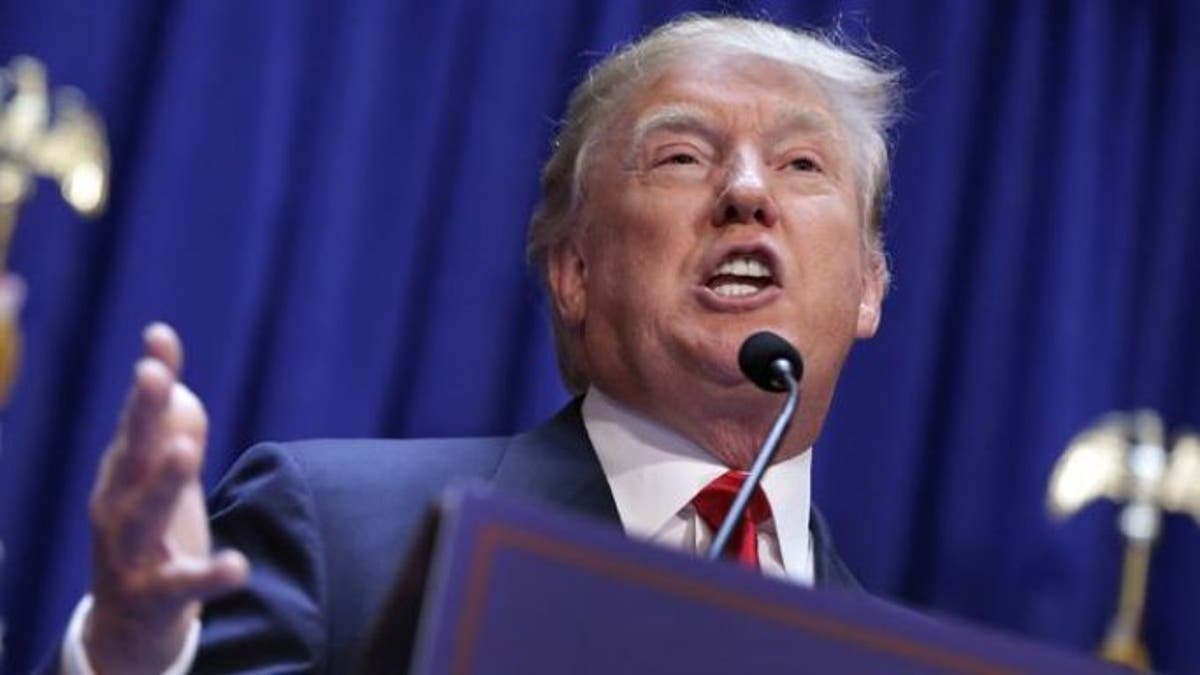
Despite reports of Donald Trump’s demise during last week’s GOP debate, the polls show that he certainly didn’t self destruct. In fact, he gained ground.
The NBC/Survey Monkey poll, which was conducted online during for the 24 hours from Friday evening into Saturday, showed Trump well on top of the field with 23 percent and Ted Cruz in second play with 13 percent. The PPP poll out of Iowa released Monday also has Trump in the lead with 19 percent support, well ahead of neurosurgeon Ben Carson with 12 percent and Wisconsin Gov. Scott Walker with 11 percent.
Many said that the NBC/Survey Monkey poll may not be as methodologically sound as some other polls. An examination of it by both myself and Pat Caddell – we have a combined 90 years of experience in survey research – led us both to conclude that the results were nothing else but credible, and at the very least are indicative of broad trends which show Trump continuing to hold onto the bulk of his support and remain a polarizing figure. The PPP poll bears this out.
The results also revealed former Hewlett-Packard CEO Carly Fiorina gaining support. Fiorina was widely agreed upon as the “winner” of the 5 pm debate – 22 percent said she won the debate – and many even touted her as having won both debates that night, with the shadow of her high quality performance earlier in the evening looming over the prime time show. Fiorina’s is climbing the polls in Iowa: she now garners 10 percent support and is in the top five as well as boasting a 56/15 approval rating as compared to 30/15 in April.
The American people, if not sympathizing with the specifics that Trump is saying, sympathize with a straight-talking billionaire who tells the truth as he knows it without political artifice or political correctness.
Indeed, in the wake of the debate, everyone is talking about Trump and Fiorina and very few others, if any.
Over on the Democratic side, the poll evidence in the last couple of weeks shows Hillary Clinton trending down and Bernie Sanders trending up, whether it be in national polling or state polling. In Iowa, Sanders stands at 25 percent to Clinton’s 52 percent, gaining substantial ground. As for the national polls, Monmouth’s latest has Clinton with a 36-point advantage over Sanders, which is substantive, but used to be upwards of 50 points over the entire field. Furthermore, Sanders has polled within six points of Clinton in New Hampshire.
What does this all mean?
Quite simply, the American people are angry and they are looking for change. They remain looking for straight talk and every time, particularly on the Republican side, that Donald Trump is dismissed, he has shown an ability and credibility, whether it be his comments about Mexicans, his comments about John McCain, or his more controversial comments generally in the debate and after.
The American people, if not sympathizing with the specifics that Trump is saying, sympathize with a straight-talking billionaire who tells the truth as he knows it without political artifice or political correctness.
Similarly on the Democratic side, there is a sense in the electorate that the game is rigged. To be sure the prescription is a very different one. There is a desire for redistribution rather than free markets, a desire for inclusive politics, rather than more particularistic politics, but make no mistake about it, the electorate is sending a loud message.
A year ago, Pat Caddell did a “Mr. Smith goes to Washington” poll, which showed that an independent or a fresh face seeking to upset the existing political arrangements would have broad appeal to as many as 70 percent of the American electorate.
Polling I’ve done for a group called, “Change the Rule,” led by Peter Ackerman, has shown that close to a record high of 62 percent of Americans wans an independent on the ballot and over 80 percent believe that the debate rules need to be changed to include more than the top two candidates in a much more open and inclusive fashion than what currently exists.
Americans are increasingly rejecting dynastic politics and are looking for fresh faces, new ideas, new approaches and yes, even new parties.
The Donald Trump phenomenon may not last and Bernie Sanders most likely not be the Democratic nominee, but it would be a profound mistake not to understand that American politics is being upended, much like politics in Europe has also been. The only difference is that our system does not easily accommodate the kind of protests we are seeing widely and broadly in the electorate.
